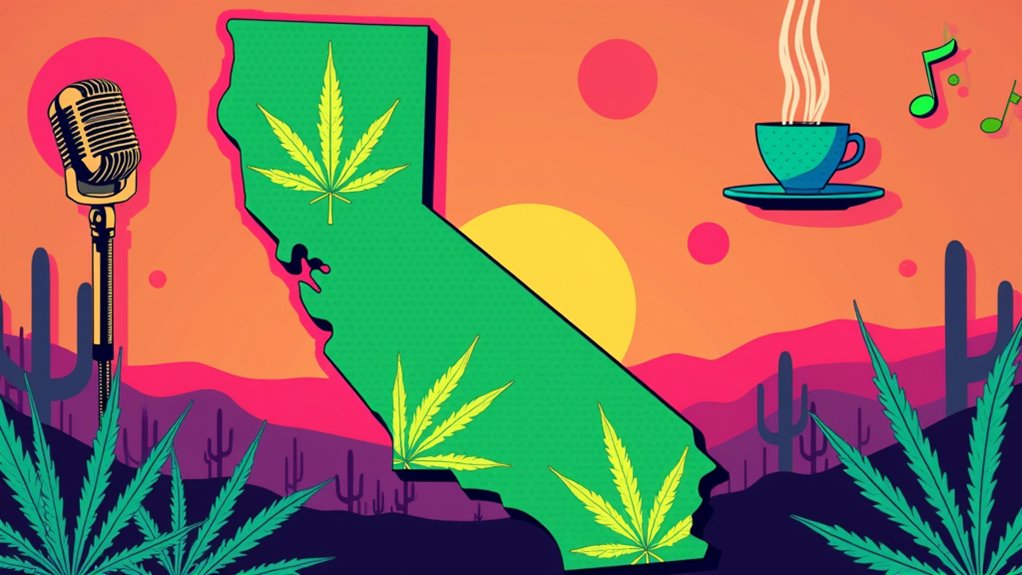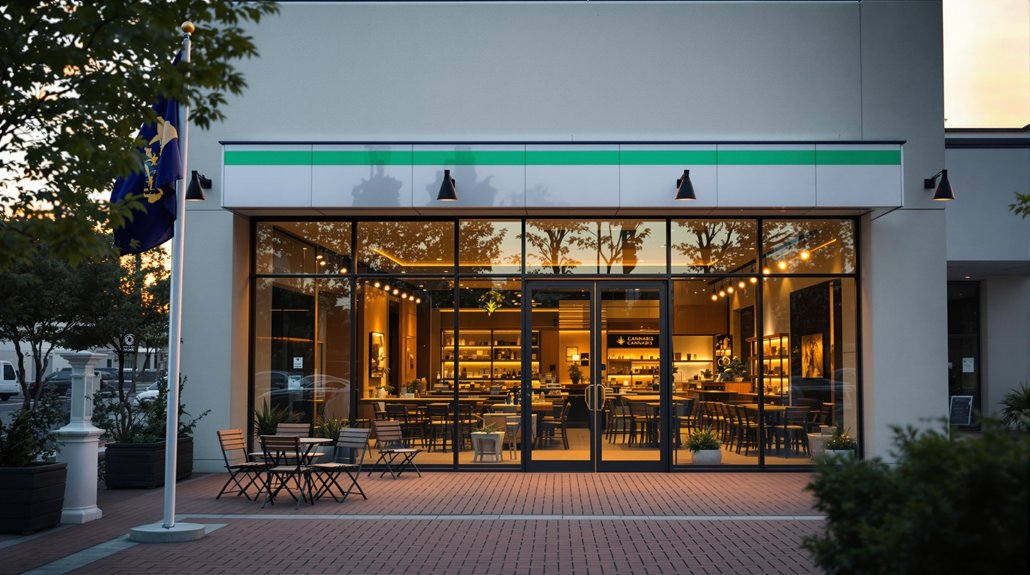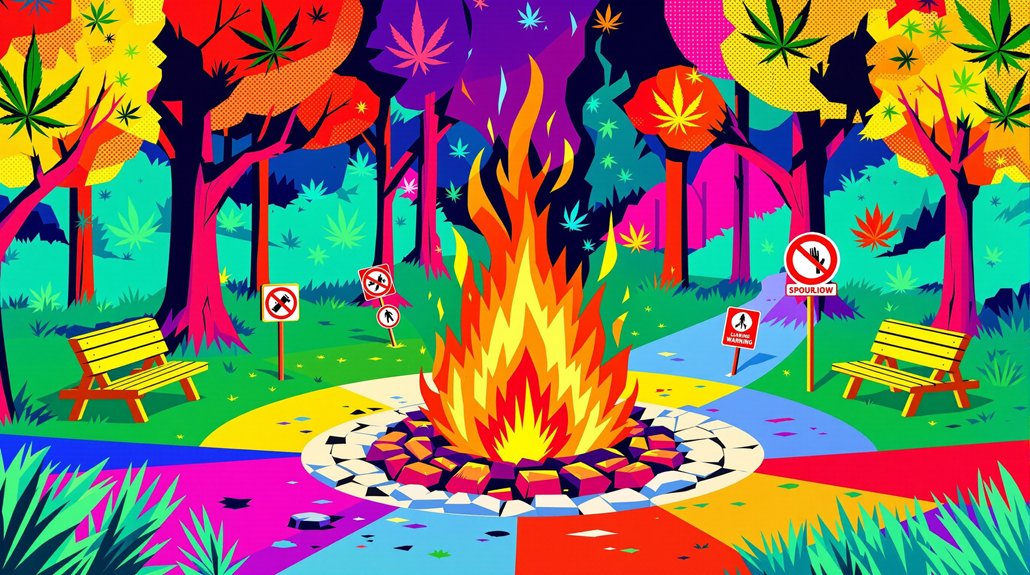California’s cannabis industry prepares for its most significant transformation since legalization as Assembly Bill 1775 took effect January 1, 2025. The legislation permits licensed retailers to operate consumption lounges complete with full kitchens and non-alcoholic beverage service. Sacramento became the first major city to approve extensive regulations, allowing establishments to serve everything from gourmet meals to craft sodas alongside cannabis products. The move promises to reshape social consumption patterns, but implementation challenges lurk beneath the surface.
January 1, 2025, California cannabis retailers are able to transform their dispensaries into full-service hospitality venues complete with freshly prepared food, live entertainment, and on-site consumption lounges. Assembly Bill 1775, signed in September 2024, officially permits licensed cannabis retailers to operate these expanded facilities under their existing Type 10 retail or Type 13 microbusiness licenses with special on-site endorsements.
The new law fundamentally changes how cannabis businesses operate by allowing them to serve freshly prepared, non-infused food and nonalcoholic beverages alongside their cannabis products. Lounges can now host ticketed live entertainment, including concerts and performances, transforming traditional dispensaries into café, restaurant, or club-like venues. Alcohol and tobacco remain strictly prohibited in all cannabis lounges, maintaining clear boundaries around substance mixing.
Local jurisdictions hold the keys to implementation. Cities and counties must pass ordinances authorizing lounges before the state grants any endorsements, ensuring community control over these new venues. Retailers in compliant jurisdictions like San Francisco, Oakland, West Hollywood, and Sacramento’s pilot program were the first to open lounges. This patchwork approach means expansion will vary greatly across California’s diverse municipalities.
The hospitality upgrade comes with serious regulatory requirements. Lounges serving food must obtain health department permits and meet the same building, health, and safety codes as traditional restaurants and bars. Local health codes often demand stringent ventilation systems and specific restroom configurations. All employees working in cannabis lounges must be 21 or older and complete responsible vendor training programs to ensure safe consumption guidance. Current restaurants cannot simply flip the script and allow cannabis use unless they obtain proper cannabis retail licensing first. These establishments must implement smoke-free areas for employees to monitor consumption while protecting staff from secondhand smoke exposure.
Revenue opportunities multiply dramatically under the new framework. Operators can generate income from food sales, entertainment events, and potentially membership programs, extending beyond traditional product sales. Extended visitor dwell time translates directly into higher per-visit spending, while event-driven patronage creates predictable revenue streams. Dispensaries can finally develop distinctive brand identities as social destinations rather than purely transactional retail spaces. Operators who implement these expanded services quickly are expected to establish significant advantages over competitors who delay adaptation.
The transformation arrives amid growing national momentum, with twelve states now permitting consumption lounges in various forms. California’s massive market size positions it as a potential national model for hospitality-focused cannabis businesses. Industry observers expect the change to accelerate innovation as operators experiment with entertainment formats and food pairings.
Public health concerns persist around the expanded indoor smoking and vaping permissions. Workers and patrons face increased exposure to secondhand cannabis smoke, potentially weakening broader smokefree workplace protections in hospitality sectors. Public health groups continue debating adequate worker protections from secondhand cannabis smoke exposure.
The lounge authorization represents California’s boldest cannabis policy expansion since legalization, merging retail, hospitality, and entertainment sectors. Success will largely depend on local adoption rates and operator creativity in developing compelling venue experiences. For an industry long confined to sterile retail environments, the opportunity to create memorable social experiences marks a notable evolutionary step toward mainstream hospitality integration.










